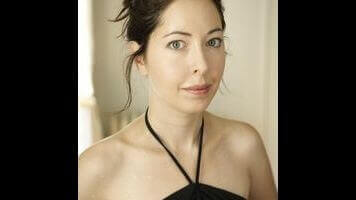Sarah Manguso’s new book Ongoingness: The End Of A Diary is both about and not about a lot of things: birth, illness, death, her diary, her transition into motherhood, and the way her transition to motherhood changes the way she writes in her diary. All of these things are explored, some more obliquely than others, but Ongoingness is really about something more.
The first line is: “I started keeping a diary twenty-five years ago. It’s eight hundred thousand words long.” Manguso’s reasons for keeping a diary vary: “I didn’t want to lose anything,” she writes—she wants to hold onto moments that seem “too full.” But she also wants control over her own narrative: “I wanted to remember what I could bear to remember and convince myself it was all there was.” So even as she uses the diary as a “defense against waking up at the end of my life and realizing I’d missed it,” she also uses it to shape, edit, and forget.
Once she has a child, though, forgetting comes all too easily: “During my pregnancy I couldn’t remember anything. Information seemed to enter my memory and dissolve.” But unlike her younger self, the older Manguso isn’t disturbed by this loss:
Before I was a mother, I thought I was asking, How, then, can I survive forgetting so much?
Then I came to understand that the forgotten moments are the price of continued participation in life, a force indifferent to time.
And this is where Ongoingness shifts from a meditation on a diary to a much broader consideration of time and mortality.
But because Ongoingness muses on these kinds of abstractions, it’s a difficult book to describe. Readers of Manguso’s earlier works of non-fiction—The Two Kinds Of Decay: A Memoir (2008) and The Guardians: An Elegy For A Friend (2012)—will be familiar with her deceptively simple style, her use of short chapters or sections, and the way these short and simple passages add up to something startlingly deep and complex. Ongoingness may not have the same level of detail as her previous books—the physical symptoms of an illness or the intimate conversations with a now-dead friend—but it has the same kind of building impact.
Ongoingness is slim but not slight, spare but not sparse. It takes us through youth and young adulthood and into middle age: “I no longer believe in anything other than the middle,” Manguso writes. The middle is where beginnings have lost their excitement, where most of the big questions have already been answered, and where the pleasures of life lie in continuation—not in arrivals or departures. The middle is so important that Manguso doesn’t even really end her book but tries to keep it going; she leaves us in the present moment, with the very word “now.”
Readers of Ongoingness will experience its gestalt: The whole is definitely greater than the sum of its parts, and what that whole is will vary from reader to reader. But this book can change the way you think about time and your place on time’s continuum in ways that will indeed be ongoing.

 Keep scrolling for more great stories.
Keep scrolling for more great stories.
